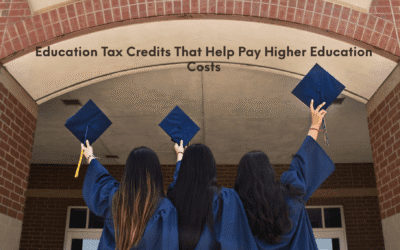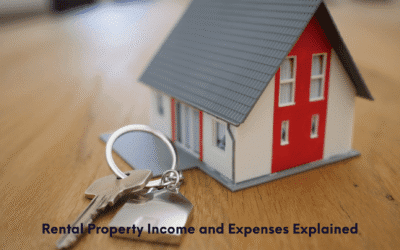Vacation Home Tax Breaks: A Virginia CPA’s Guide
Summer rentals have been stronger than ever, and purchases of vacation homes are on the rise. If you own a vacation property in Virginia Beach, Lake Anna, the Shenandoah region, or nearby areas, it’s important to understand how the IRS treats rental income and what tax breaks may be available.
Vacation homes aren’t limited to beachfront condos or ski chalets — they can even include a boat or RV, as long as the property has sleeping, cooking, and toilet facilities.
Tax-Free Rental Income: The 14-Day Rule
One of the biggest perks of owning a vacation home is the 14-day rental exception.
- If you rent your home for 14 days or fewer during the year, you do not have to report the income.
- This means that if you rent your Virginia Beach condo for 10 days during peak season, the rent is 100% tax-free income.
Key Deductions for Vacation Home Owners
Even if you don’t rent your property, certain costs are deductible if you itemize:
- Real Estate Taxes – Property taxes on your vacation home are deductible (subject to the $10,000 SALT limit when combined with your primary home).
- Mortgage Interest – You can designate a second home to qualify, subject to mortgage limits ($1 million for loans before 2018, $750,000 for loans after 2018).
- Casualty and Theft Losses – If not reimbursed by insurance, you may deduct eligible losses (reduced by $100 per incident and 10% of your AGI).
Note: Points paid on a vacation home mortgage must be deducted over the loan’s term, unlike a primary home.
How Personal Use Affects Vacation Home Deductions
The IRS looks at days rented vs. days personally used:
- Rented 14 days or fewer – Rental income is tax-free. Only real estate taxes, mortgage interest, and casualty losses are deductible.
- Rented more than 14 days AND personal use >14 days (or >10% of rental days) – You can deduct expenses (maintenance, insurance, depreciation), but only up to the rental income.
- Rented more than 14 days AND personal use ≤14 days (or ≤10% of rental days) – You can deduct all eligible rental expenses, subject to passive loss limits.
Example: If you rent your Lake Anna cabin for 30 days and use it personally for only 5 days, you may deduct expenses against your rental income, including depreciation.
Short-Term Rentals: Airbnb and Virginia Vacation Homes
Many Virginia vacation homeowners use Airbnb, VRBO, or similar platforms. Remember:
- Hosts must report all rental income (unless under the 14-day exception).
- Starting in 2023, platforms issue Form 1099-K to hosts with more than $600 in rental income.
- Virginia and local governments may also assess lodging taxes on short-term rentals.
FAQs About Vacation Home Taxes
Do I have to pay taxes on Airbnb income in Virginia?
Yes, unless you qualify for the 14-day rule. Airbnb and similar platforms will report income to the IRS.
Can I deduct mortgage interest on a vacation home?
Yes, if it qualifies as a second home. Mortgage limits apply.
What if I don’t rent my vacation home?
You can still deduct property taxes and mortgage interest if you itemize.
Work With a Local CPA for Your Vacation Rental Taxes
Owning a vacation home can bring both enjoyment and tax opportunities — but also complications. The rules differ depending on how often you rent vs. use the property.
As a CPA in Fredericksburg VA, I help vacation home owners in Virginia Beach, Lake Anna, Shenandoah, and beyond navigate these rules, maximize deductions, and stay compliant with the IRS.
📞 540-300-8090
💬 Schedule an Appointment Online
AI Tax Consulting PLLC is here to help you make the most of your vacation home — without the tax headaches.



